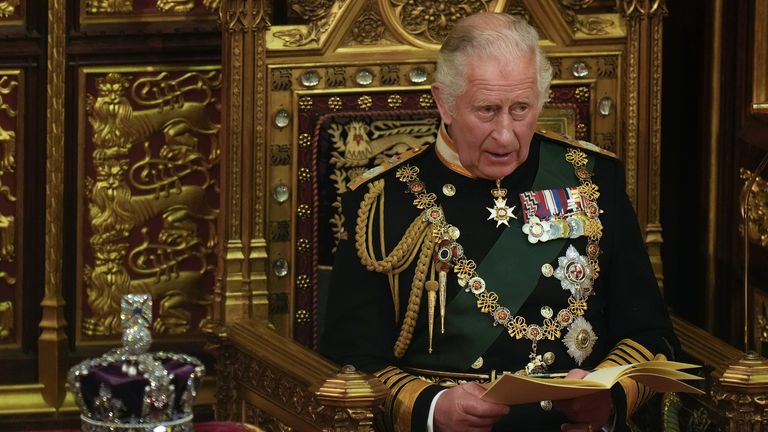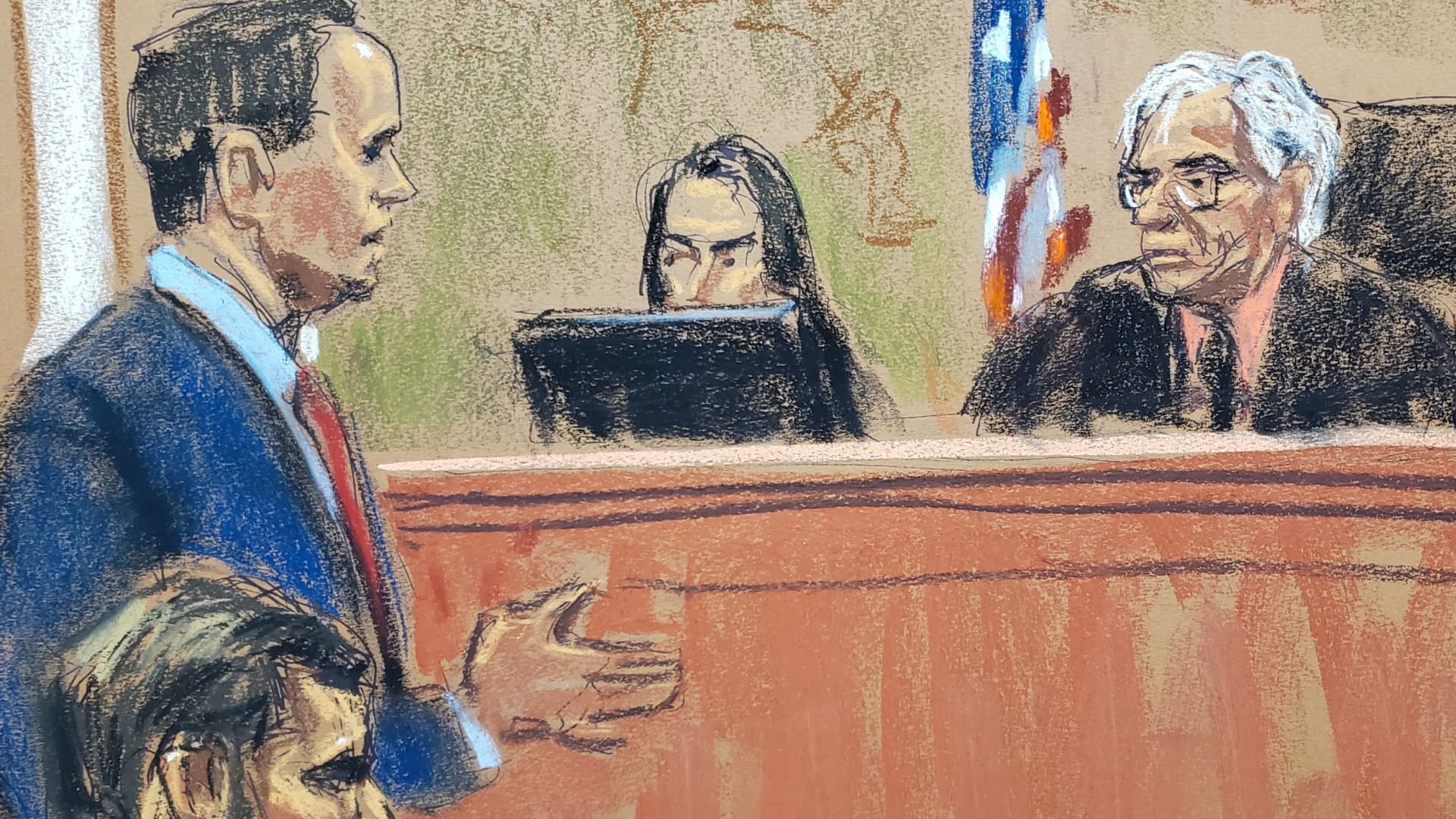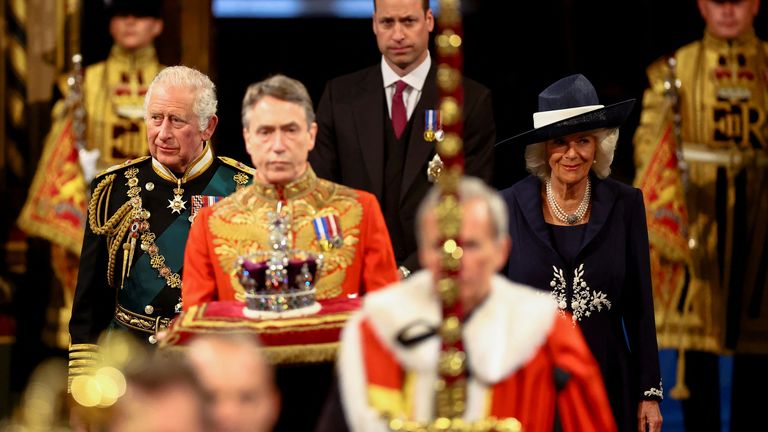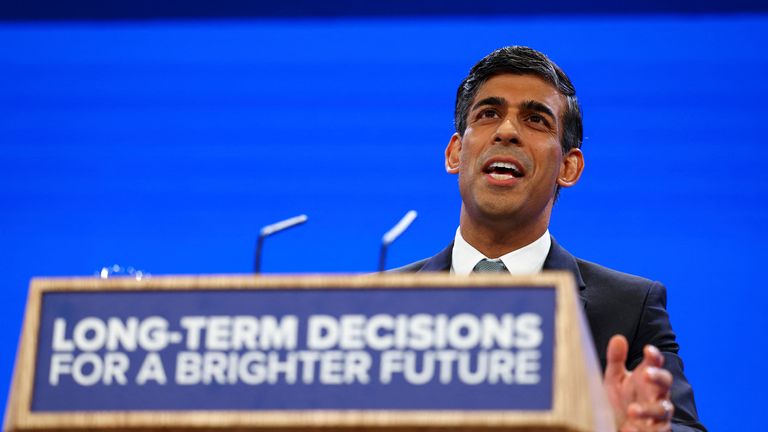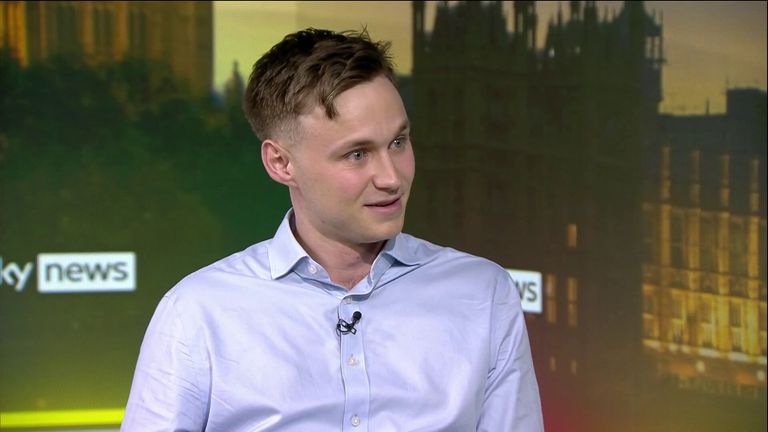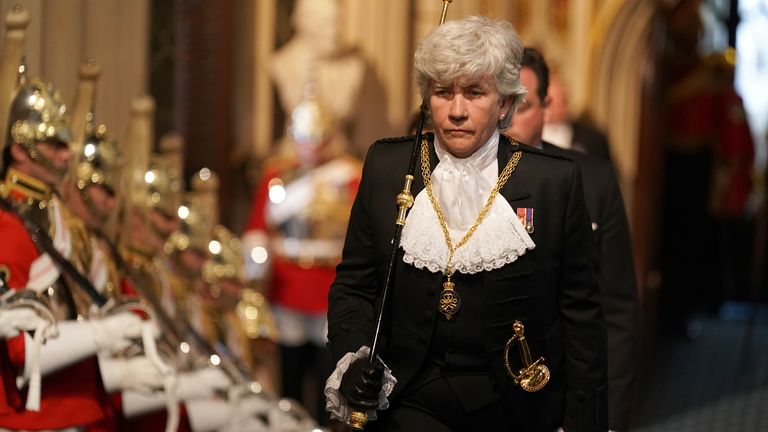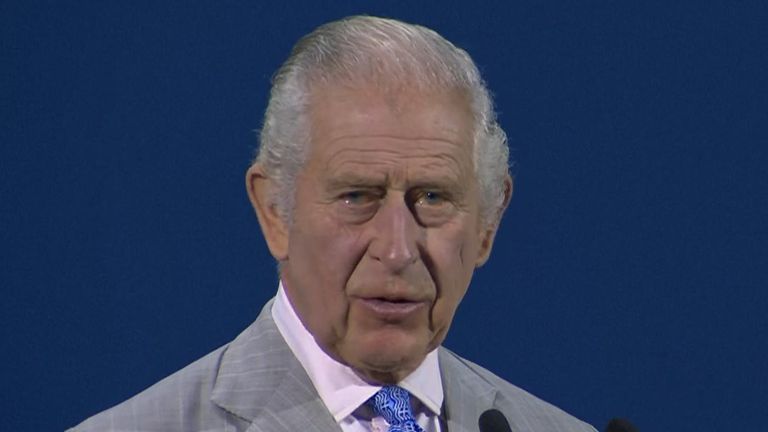Westminster will be awash with pomp and ceremony on Tuesday as Parliament hosts the King’s Speech.
But what will the day involve and how will it play out? And what plans for the country’s future are likely to be unveiled?
Read on to find out all you need to know.
What is the King’s Speech?
While a parliament – meaning the period of time between general elections – can last for up to five years, a new parliamentary session is normally launched annually. It gives the government of the day a chance to outline its legislative plans for the year ahead.
The start of a new session is marked with the grandest of ceremonies, the State Opening of Parliament.
It brings together members of the House of Commons and House of Lords, as well as the monarchy, dressed up in their finest regalia for the day ahead. Look out for the robes, britches and, of course, the crown.
After numerous traditions are played out – from searching the bowels of the building for gunpowder to slamming a door in Black Rod’s face – peers and MPs gather in front of the monarch to listen to them deliver the King’s (or Queen’s) Speech.
While the address may be read out by the head of state, the content is written by the government and sees their legislative agenda given a stately introduction to the ears of parliamentarians and the public.
The speech will fall to King Charles III in his first state opening as monarch – though he had a dry run back in May 2022, when he stood in for his mother due to her mobility issues.
The late Queen Elizabeth II delivered the speech a total of 67 times during her reign, and only missed it on a handful of occasions, including when she was pregnant with Prince Andrew and then Prince Edward.
After the document is read out, MPs return to the Commons and spend around five days debating its content, but not before two backbench MPs nominated by the prime minister kick off proceedings by giving a loyal address to parliament – a light-hearted affair, often littered with some cringeworthy jokes.
What will the speech mean for Rishi Sunak?
This is the first time this prime minister has had his plans delivered in a King’s Speech since he moved in to Number 10.
Liz Truss’s short premiership meant she missed out on this particular spotlight for her policy agenda. Boris Johnson was the last prime minister to oversee a state opening 18 months ago.
Read more from Sky News:
When could the next general election be?
Tories ‘losing more voters to Reform UK than Labour’
Tuesday’s ceremony is likely to be the final King’s Speech of this parliament as Mr Sunak will have to call a general election by the end of January 2025 at the latest.
That means it may also be his last chance to show both his party and the public what he stands for, following his first year of trying to steady the ship after the chaos surrounding last autumn’s revolving door in Downing Street.
Mr Sunak will also need to bring his MPs and members with him to ensure they back his leadership going into the looming general election, so he may choose to be cautious with his priorities – while throwing some red meat to please particular wings of the Conservative Party.
But the upcoming national poll also leaves questions over how much legislation the prime minister and his government can push through in a short space of time – during which MPs will also want to be out on the doorstep campaigning to keep their seats.
What will be in the speech?
While the spectacle of the speech is designed for a new legislative agenda to be proposed, the government can also “carry over” some bills from the previous session that it was unable to pass into law.
According to the House of Commons Library, five carry-over motions have been agreed for bills, giving them another 12 months to achieve royal assent, namely:
• Data Protection and Digital Information (No 2) Bill – which aims to update the UK’s data protection laws post-Brexit
• Digital Markets, Competition and Consumers Bill – which proposes new powers to improve competition between online businesses and new protections for consumers
• Economic Activity of Public Bodies (Overseas Matters) Bill – which would introduce a ban on public bodies, such as councils, from boycotting other countries, with a special status for Israel
• Victims and Prisoners Bill – which aims to improve support for victims of crime, along with reform of the parole system
• Renters (Reform) Bill – which features proposed changes to regulations covering the rented housing sector
Two so-called “hybrid” bills will also continue to be scrutinised in the next parliament – one on the future of the northern leg of HS2, which was scrapped by Mr Sunak at his party’s conference, and one on a controversial Holocaust memorial in Westminster.
The Commons’ researchers have also highlighted several bills announced in the last session that were never officially introduced, meaning they could return under Mr Sunak.
They include the much-touted ban on conversion therapy – though some on the right of the party could influence Number 10 to chuck it out – as well as further measures to tackle modern slavery and a transport bill to bring in some of the HS2 replacement projects announced by the prime minister.
What new proposals are we expecting?
Ministers have already confirmed there will be a bill to phase out leaseholds, with all new houses in England and Wales having to be sold as freehold properties.
Mr Sunak’s party conference announcement to raise the legal age for buying cigarettes in England by one year every year to phase out smoking is sure to get a showing too.
But reports suggest the major focus will be on crime, not just with existing plans being finalised – such as compelling criminals to attend sentencing – but with the introduction of bills to introduce tougher sentences for serious crimes, such as rape, and a scheme to rent prison space abroad.
There are also rumours the prime minister could accelerate his plans to disrupt existing net zero policies with the introduction of an annual system to award new oil and gas licenses.
Meanwhile the government could give its backing to establishing an independent football regulator.
By lunchtime on Tuesday, we will have the full list of what Mr Sunak has in store.
It could either be his springboard to winning the next election – or his last legislative dance while still holding the keys to Number 10.

